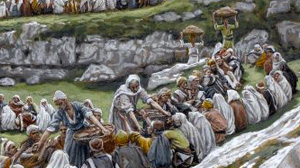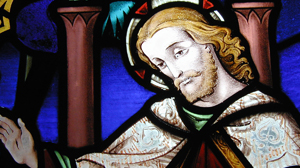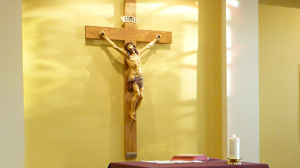Scripture:
1 Kings 19:9a, 11-13a
Romans 9:1-5
Matthew 14:22-33
Reflection:
Our readings for today offer us a rich view of humanity; in our first reading, the prophet, Elijah, fears for his life and unable to hear God’s voice hurries to the mountain of the Lord, Horeb. We have true desire demonstrated by Peter in our Gospel as well as deep and abiding love on the part of Paul in our second reading.
I have always viewed this Gospel passage as Peter’s lack of faith in Jesus which started him sinking. I now believe I was wrong. It is his little faith in himself that causes him to sink. He looked around, felt the strong wind, his courage failed him and he instantly called out, “Lord, save me.” Peter demonstrated incredible faith in Jesus by his original request to come to him on the water. Most people didn’t know how to swim in ancient times, there was much fear of deep water; monsters were thought to reside beneath the waves. What a crazy request! He believes that Jesus has all power. If he had little or some faith in Jesus—I do not think even Peter would have taken such a bold leap. Later, to save his own skin, he denies Jesus. As I see it, Peter’s faith in Jesus was seamless; he greatly underestimated his own capacity to overcome fear and doubt—thus far. Post-resurrection, we see a changed and courageous Peter.
What is fascinating to me is that the disciples in the boat can hear Jesus words of courage and comfort even as the wind and waves rage—wouldn’t that have been difficult to hear? Certainly, Elijah was unable to hear God’s voice in the loudness of nature surrounding him. Might it have been Elijah’s own fear preventing him from hearing? What I hear today, is that God’s voice will always break through. True, we often need to still the voices of fear and doubt which can and do rage inside us before we can actually hear. Yet, never underestimate the power of the “Son of God” to breakthrough under any conditions in life!
And what of Paul’s beautiful lament about his people, the Israelites, to whom the Messiah was sent? His agony at feeling the loss of his kindred, those who had cut themselves off from the Good News. No doubt his sorrow echoes many today; parents, grandparents, and others who mourn the loss of their kindred who seem to have turned away from God. Yet, he surrenders it all to, “God who is overall be blessed forever, Amen.” So, must we.
Like Peter, do I doubt myself? Do you? I realize Jesus is asking me, “why did you doubt yourself? when I say, Come, you should not allow your doubts to drown out your desire to respond.” Every time I doubt and start to sink he plucks me out of the water and gets into the boat with me and the wind always dies down. I have only one response, “homage” praise you, Jesus. Alleluia to you! Jesus is always saying, “Come”.
Jean Bowler is a retreatant at Mater Dolorosa Passionist Retreat Center in Sierra Madre, California, and a member of the Office of Mission Effectiveness Board of Holy Cross Province.







